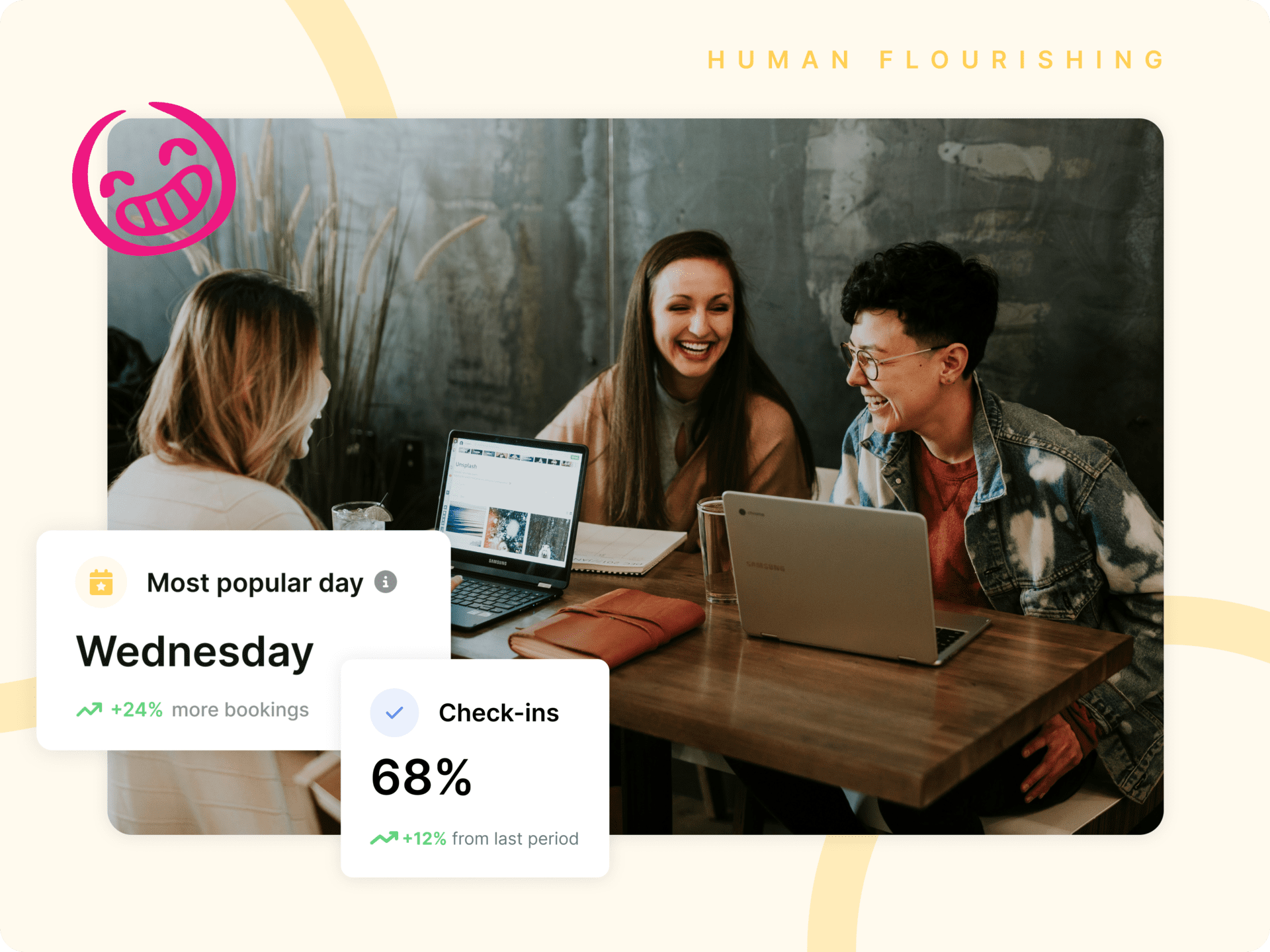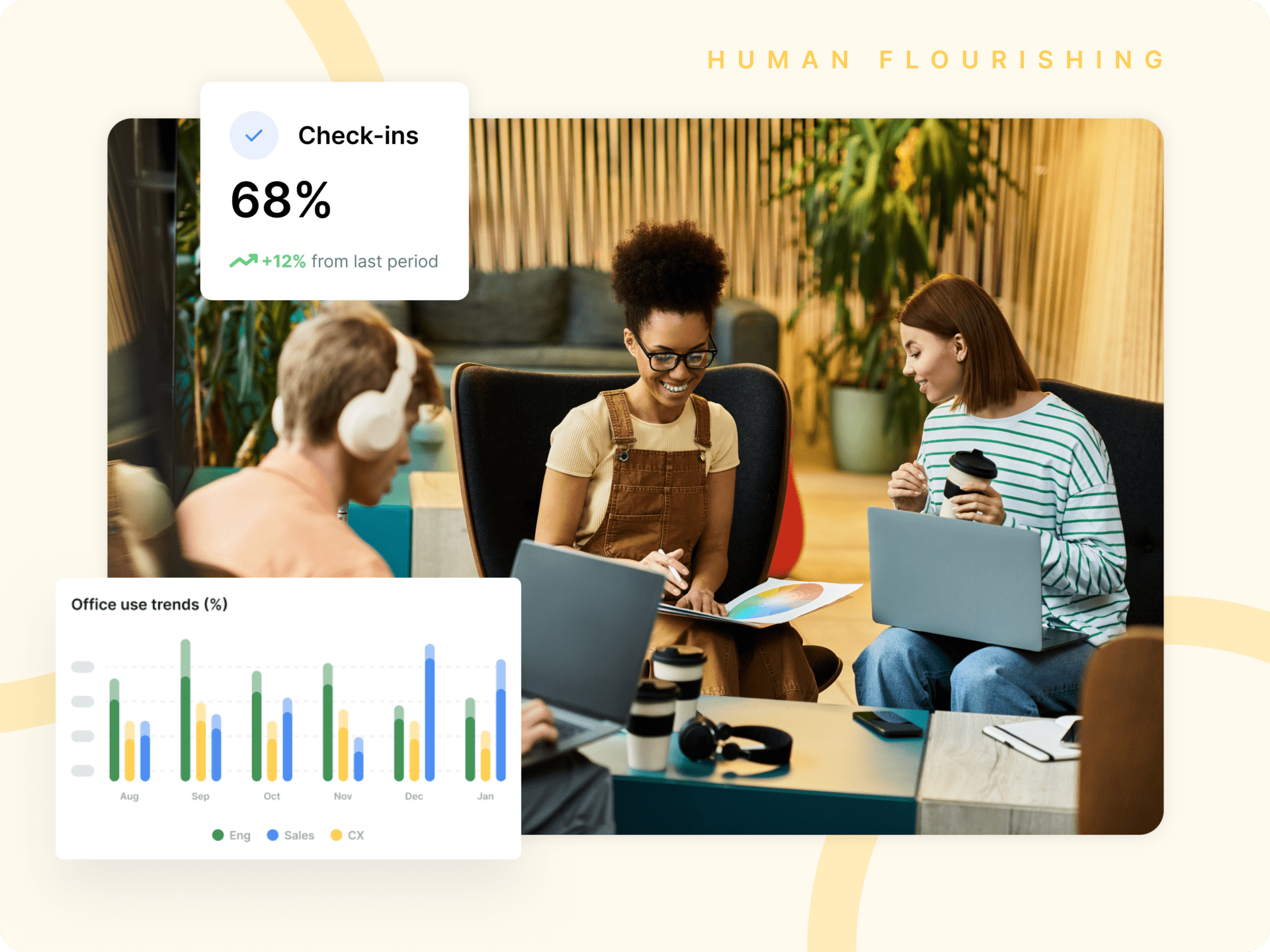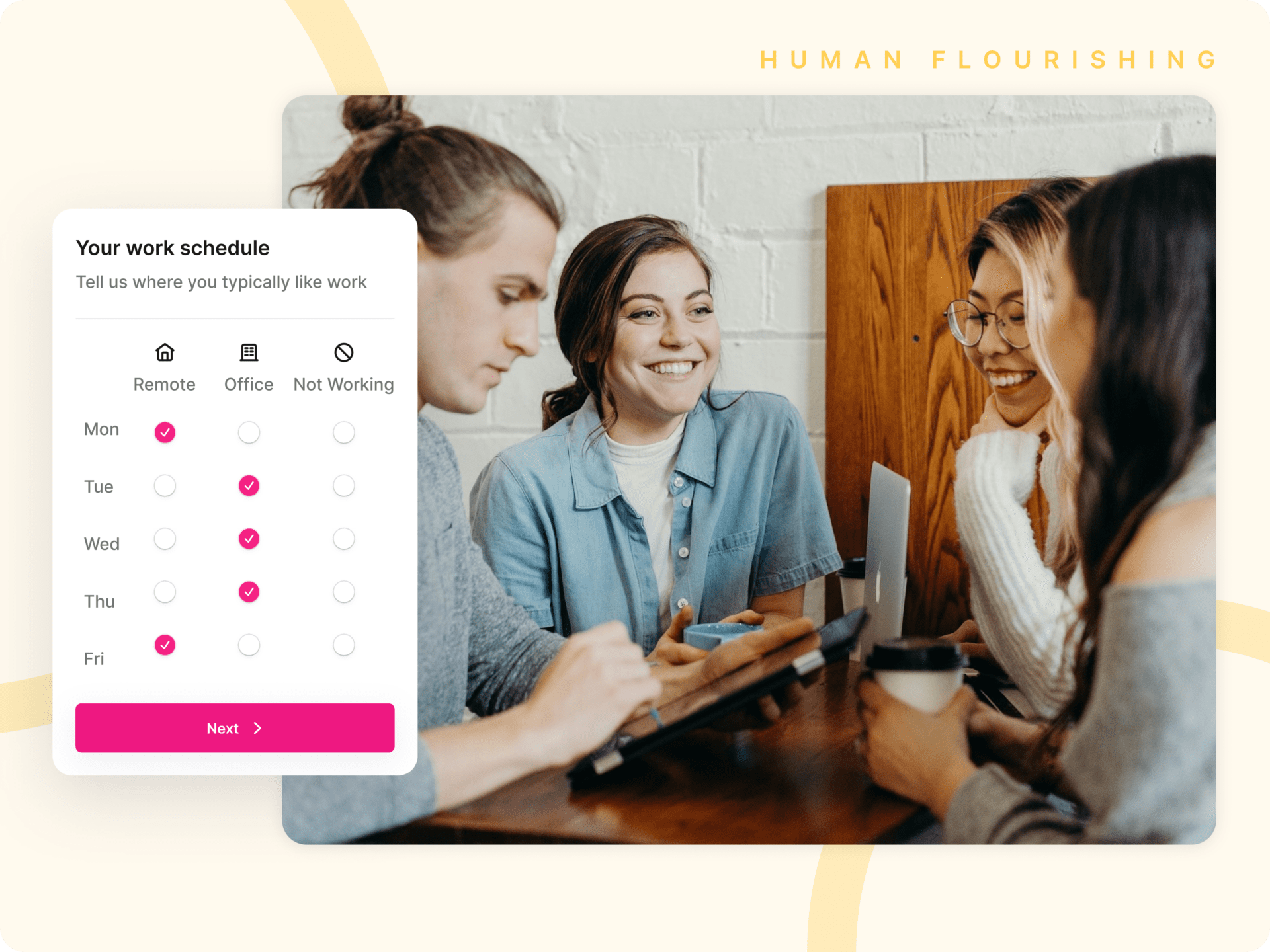Gallup recently found that only 12% of hybrid workers benefit from hybrid policies decided by their individual team.
Crucially — they also found that this small group is also the most engaged.
It seems that when employees are given the trust and autonomy to make their own decisions — and be really heard by their team members — they become more satisfied as a result.
As Head of People and Partnerships at Kadence, my job is all about helping the people around me flourish at work.
In this piece I’ll guide you through what we’ve learned at Kadence about the power of listening to your teammates — and how it keeps us organized and focused on outcomes.
And check out this conversation I had with the wonderful Brian Elliott about what it means to listen and support teams.
Communication: The Foundation of Hybrid Work
At Kadence, our mission is helping companies to find the right rhythm of work for their unique teams.
Our employees work between San Francisco and Amsterdam, and every single one of us has the option to choose how and where we get our work done.
The distribution of our team, while being a great illustration of what it means to be fully hybrid, has shown us loud and clear the importance of strong communication in hybrid teams. It can be tricky to coordinate employees who are spread over the world, let alone keep them happy and fulfilled at work. Good communication is the foundation.
Our technology is built precisely for this. By providing our employees with tools to help manage their schedules, coordinate with colleagues, and make sure they’re in the right place at the right time, we ensure everyone has access to a base layer of communication. Schedule management is about more than just logistics — it’s about sharing the when, where and what of work with your teammates, so you can coordinate and communicate with them better.
These tools have helped us become a better company, where our distributed teams feel connected despite the distances.
But we’ve also found that none of this would make sense without first ensuring we have the first part of communication in place – listening.
The Importance of Listening
Experts in the field of work agree that keeping open communication channels and practicing active listening are one of two key factors in employee retention and satisfaction.
Listening is powerful.
It makes sense, doesn’t it? The feeling of being listened to is one of the most validating things you can experience, whether in your personal or professional life.
When it comes to navigating the ins and outs of hybrid work, listening is all about understanding the unique preferences and needs of each individual employee.
Those preferences extend to the frequency of office-based work, team meetings, company-wide gatherings and other specific hybrid work routines.
At Kadence, we hold regular feedback sessions on company and team levels to ensure our employees have the feeling they are actively being heard, and give them a platform to air any concerns or developments in their navigation of flexible work.
One of our most successful team-level agreements is that employees set their own agendas for 1:1s with managers. Those moments of discussion shouldn’t be managers “checking up” on their teammates but rather employees feeling comfortable raising any number of topics that have been on their mind.
Through encouraging active listening to each other, we hope to head towards a rhythm of work where everyone in the company feels fully heard and understood.
Documenting Discussions: TLAs
In the journey towards staying connected and coordinated as a distributed team — we’ve understood that alignment is even more powerful when it’s done on the team level. And when it’s put down in writing!
TLAs – or “team-level agreements” – have been a game changer for making sure we document and keep to the discussions we have about where, when and how we do work. Just because our team is spread out over various countries, it doesn’t mean we have to sacrifice on alignment and connection.
Team-level agreements leave the finer details of hybrid work entirely up to our individual teams. Through open discussion and constant iteration, teams can decide for themselves:
- Their core working hours
- The team rituals
- Their balance of remote and in-person work
- Their main communication channels and work tools
We believe that sweeping hybrid company policies aren’t useful when it comes to ensuring everyone is on the same page about how and where to do work. Everyone just ends up on their ”own” page!
By giving our teams the power and autonomy to choose a work system that makes most sense for them and as part of the whole culture — we hope to see our people flourish and grow more than ever.
And by encouraging them to get their team values and rituals down as tangible agreements, we ensure the work we put towards listening to each other translates to concrete actions.
At Kadence, we’re constantly editing the blueprint out for ourselves. We see hybrid and flexible work as living things — not simple company policies established once and for all.
For that reason, we’ve found communication to be crucial: especially when trying to make sense of a distributed team.
We encourage as much discussion and feedback as possible, and our hope with that is to continue learning together about the challenges we will inevitably face as a hybrid organization.
Only that way can we continue to optimize the experience here — while bringing out the best in our people, and ultimately our business.
To find out more, check out some of our other available resources or book a demo with the team to see how Kadence can transform your workplace.




